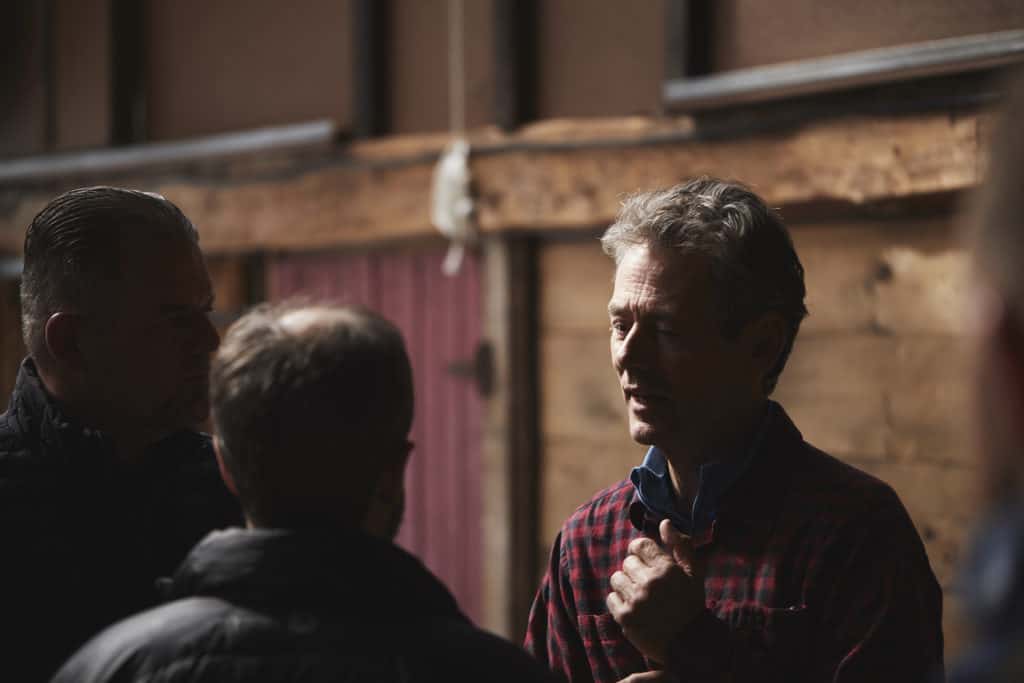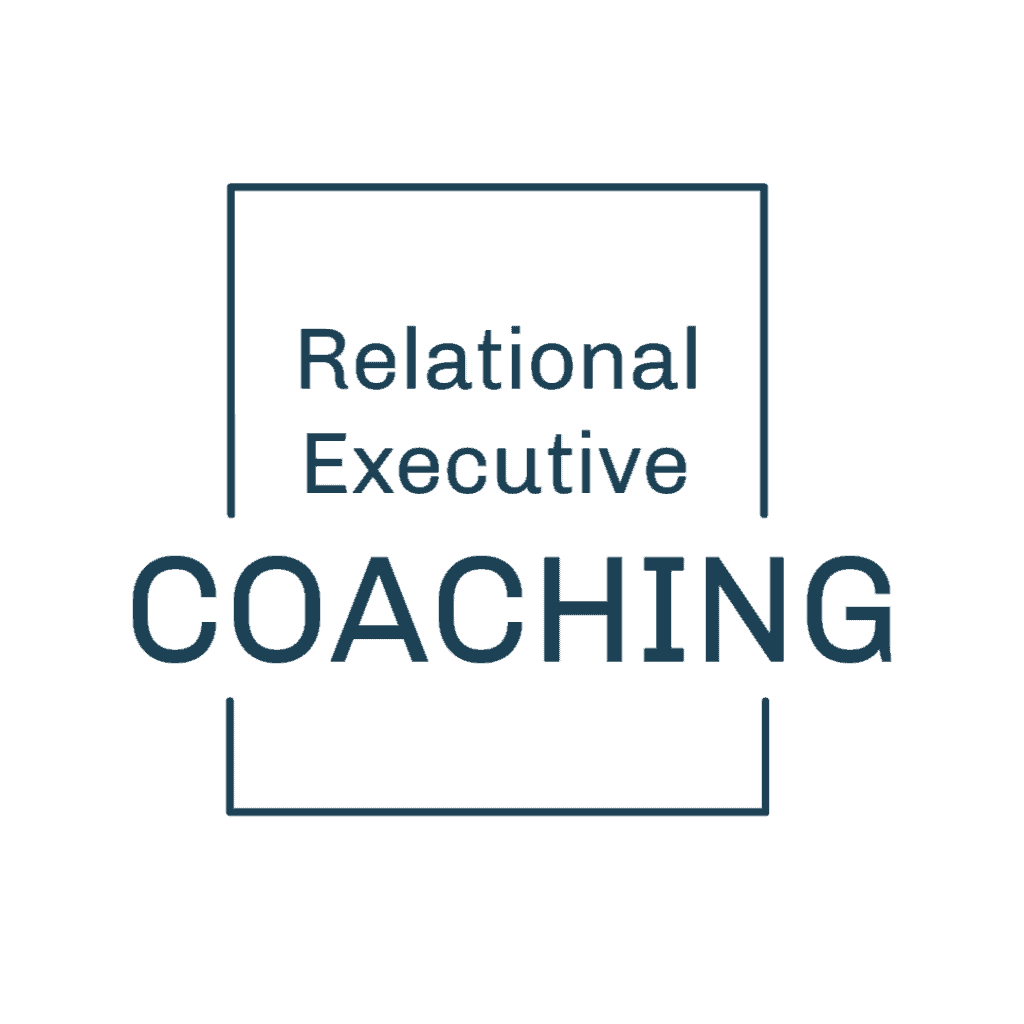What Is Men’s Executive Coaching — and Why Does It Matter?
Here’s the thing: executive coaching for men isn’t about fixing you. It’s a focused partnership designed to help you lead with more presence, make better decisions under pressure, and build the kind of connections, at work and at home, that actually hold.
Most coaching approaches give you frameworks. Models. Systems to follow. I work differently. We go deeper into your experience — into the places stress, trauma, or just being raised male taught you to disconnect from. That’s where your real resources are. When you access them, you don’t just think differently. You show up differently. More grounded. More present. More powerful.
The men who work with me are often successful in their careers. They’ve built companies, led teams, climbed the ladder. But something’s off at home. Or they sense they’re leading from force rather than presence. They realize that investing in themselves, in how they actually operate, will produce the best ROI.
We Hunger for Connection
Men generally come to me because their primary relationships are not where they want them to be. Their career success is not matched at home. How can you expect it to be when we have rarely seen successful relationships?
Despite what may feel like a failure, we long for our vision of a relationship where being with our partner gives us energy. Using the principles and skills developed for EVRYMAN and now MELD coaching, and through training thousands of men over two decades, we see men use their physiology to connect with their own experiences and with others.
The Evolution of MELD Coaching
I had the good fortune to train with and often teach with leaders in the fields of somatic and relationship therapies back in the late 1970s and 1980s. Ron Kurtz and Peter Levine, Ph.D., taught me how to use body awareness as a powerful yet gentle way to produce significant change. Over the past five years, I have been lucky to work with Sue Johnson, Ph.D., and Esther Perel, two masters in relationship therapy.
Melding what these masters taught me with tens of thousands of hours training and working 1:1 with clients, I discovered how to expedite sustainable change for men. This led to training coaches and therapists in basic and postgraduate MELD Method skills and MELD Coaching.
The Evolution of a New Somatic Model
Melding research and the wisdom of others discovered by 30+ years in men’s groups led me to write Grow Up, A Man’s Guide to Emotional Masculine Intelligence. The book lays out the nine phases of our development. Because of stress, trauma, lack of connection, or our cultural upbringing, we did not fully experience these phases. The gaps become repetitive traps. Filling the gaps with the needed experiences can quickly enable you to succeed where you have been failing.
My Somatic Coaching training began in 1978 with Ron Kurtz, who developed Hakomi Therapy and then Hakomi Coaching. Later, I integrated my years of training with Peter Levine and his Somatic Experience somatic psychotherapy into a body-based physiological approach. My somatic training led me to study how the unconscious can enhance sustainable change. After several years of studying Ericksonian Hypnosis with Stephen Gilligan, PhD, my effectiveness improved. Enrolling the body and the unconscious mind in the change process is much like upgrading your phone by several generations.
After decades of honing my somatic coaching skills, I realized a longstanding vision by launching a professional coaching program designed specifically for men, utilizing a unique approach I developed, the EVRYMAN Method. This program, which evolved over three cohorts, comprises over a hundred comprehensive lessons that delve into personal growth, complemented by both virtual and in-person trainings where participants fully engage with the material. I had the privilege of training a cadre of trainers, who co-facilitated the EVRYMAN Coach program along with other programs. We successfully trained nearly a hundred men, many of whom have since forged thriving careers as a Coach. The Foundation Training program I initially created to certify EVRYMAN Coaches has now been integrated and expanded into what is today known as the MELD Integrated Training. We go beyond the traditional somatic coaching to teach skills that are useful in business and relational settings.



First and foremost, I cannot begin to express how deeply I appreciate the guidance and support you’ve offered me over the past months. With your help, I’ve navigated both personal and work-related challenges in ways I couldn’t have imagined before. Your influence has been invaluable in shaping my journey toward self-awareness and emotional intelligence.
I’ve noticed a palpable change in my ability to identify and understand my emotions. More importantly, expressing them—whether in a personal or professional setting—no longer feels as daunting as it once did. This growth, I believe, is a testament to our time together and the techniques you’ve introduced me to.
Adam Heitzman Managing Partner – HigherVisibility
Executive Coaching for Leaders Who Carry Responsibility
Within the vast panorama of leadership, imagine it as both a science marked by reliable rules and an art, defined by the subtle dance of relationships. This is the stage on which I place MELD Relational Executive Coaching. Drawing from a wellspring of experience and unique training, I’ve guided senior managers from industry behemoths such as IBM and Google and ambitious members of the Entrepreneur’s Organization (EO).
This approach, relational leadership, has been my cornerstone, a concept often overlooked in the conventional corridors of executive coaching. I saw something missing while studying multiple coaching, therapy, and leadership approaches. The best analysis or plan will not succeed if the team members are disconnected. We’ve demonstrated how this unique approach fosters authentic and effective leadership. By emphasizing somatic awareness, authenticity, and presence, I help transform clients from mere commanders into lighthouses, illuminating the way for their teams.
From leaders who wanted me to apply this sociobiological approach to their companies, I created NEUROS, a B2B support and training business. Organizations realize that traditional team-building programs often aren’t sustainable because they don’t address the underlying issues.
Consider leading a team where trust isn’t a luxury, but the very foundation, where every individual feels seen, heard, and validated. This leadership style cultivates a culture of mutual respect, compassion, and acceptance, providing fertile ground for innovation and commitment. As a result, the managers under my coaching have seen a significant boost in their leadership acumen and their teams’ performance, leading to comprehensive organizational growth.
Relational Executive Coaching transcends professional boundaries. It’s about transforming you not just into a more effective leader but being your own man, deeply connected, compassionate, and influential. This is your chance to inspire, to lead with compassion, and to genuinely make a difference.
What Results Can You Expect From Men’s Executive Coaching?
Over the years, men have reported a broad range of improvements in their lives:
- More presence under pressure — staying grounded when things get heated
- Better decision quality — leading from clarity rather than reactivity
- Stronger connection at home — partners who feel met, not managed
- Higher team engagement — people who trust you and want to work with you
- Reduced reactive leadership — responding instead of reacting
- Greater confidence and self-regulation — relaxed and present, not performing
This comes from a deeper shift in your nervous system. You’re not just learning new behaviors. You’re changing how you operate at a fundamental level. Men report feeling safer in themselves — and generating that sense of safety for others. That’s critical for building secure connections, whether with your partner at home or your team at work.
A Life Worth Living
There is no magic pill. Removing your limitations and using emotions to connect shifts your foundation. We realize that running around addressing the latest symptom does not work. It is not working harder; it is working with new plans and tools.
At the end of the day, do you feel alone? Find your joy, passion, and hope again. Get unstuck to begin living a life of substance.
A Personal Intensive
For the adventurous man, or maybe for the man who does not want to wait, we offer the Body of Work personal Intensive.
Master Your Emotions
How many times has someone or you said that?
Men often come to us wanting to control their emotions. They quickly learn that their lives and relationships aren’t working because emotions don’t like being controlled. Sure, you don’t want to go around reacting. Yet, there is another path.
How about addressing what drives the reactions? How about if you discover a better way to move that energy? There are ways that bring more of what you and others want.
FAQs – For Men’s Coaching and Executive Leadership Development
What does “coaching for men” actually mean — and how is it different from therapy or self-help?
Coaching for men has really grown in the last 10 years. It often seems like every other guy is a men’s coach. So let me bring some clarity to the field.
To start with, coaching for men is not just diagnosing or guiding from the outside or giving self-help platitudes. Our work with MELD and what we teach men, the core of it is to take men deeper into their experience. What we’ve learned and now the research is supporting, is that when we can connect to places in us that we’ve had to be disconnected from because of stress, trauma, or the culture, we’re actually connecting to hidden or latent resources.
My goal is to assist men in connecting to these resources so they have a lot more to work with for their emotional well-being, for their connection with other people, for their leadership, and just feeling like their life is more fulfilling. One of the side benefits men report is that when they connect to these resources, they just have more presence without any effort. They’re more relaxed, but at the same time, feeling more powerful. They’re not just thinking differently; they’re actually being and doing differently, which is much more aligned with who they really want to be. All that becomes a self-fulfilling prophecy or a self-perpetuating cycle.
What kinds of men benefit most from executive coaching — and who maybe isn’t ready?
I guess you could say that in a broad sense, almost any guy who wanted to change could benefit from coaching. Now the men that I’ve attracted over the years and received a lot of benefit are men who are often successful in their career or are on the road to being successful, but aren’t satisfied at home, or they want to improve their leadership or their success at work. They realize that investing in themselves will produce the best ROI.
They often realize there’s a gap between being connected to or feeling successful with their emotions, with their relationships, and with a greater community, and possibly also with just feeling they’re living a life of fulfillment.
I discourage men who are just looking for a quick fix. I do my best work with men who are really looking for fundamental change, becoming more efficient across the board, not just in their performance at work, but also in their being and performance at home, in relationships, and in their whole lives.
What is the coaching process — what happens from start to finish?
Often, for coaches, the process starts with a free consultation. Would working with me be the best return on your investment for both of us? Am I able to make a significant difference in your life and what you want to achieve?
If we both feel it’s worth a try, I ask men for a six-month commitment. It’s not in writing, so either one of us can quit at any time. But I set that up because I don’t want just to be doing a quick fix. I want to create fundamental change that is not just sustainable but generative, in which you, your nervous system, your emotions, and how you interact with people all change at a level where you’ve learned new principles and new skills that are self-perpetuating. You keep refining those skills because they’re fundamental, and that’s something you could always continue to hone.
Through the process of coaching, it weaves between integrating somatic awareness, somatic releases, and working with your relationships. A lot of what I do is give men simple homework to reinforce what we’re doing in the coaching session, but also to work on what’s happening live in the session or what’s actually happening in your life. So you go out, create change in the session, practice that change, enhance it, and then come back, just like a good coach would. “Okay, that was great. Well, let’s work on this particular little skill over here because I see that that’s where it started falling apart.” We keep honing that.
Over a course of time, you’ve come up with a way to perfect your way of being in the world in such a manner that it just starts to stay with you. My ultimate goal for decades has been to get people so they don’t need me. Which doesn’t mean I’ll never see you again, but I don’t want to keep seeing you every week for the rest of your life. Honestly, I’d get bored, you’d get bored, and I certainly believe it’d be a waste of your time and money.
I often suggest other therapies, processes, and events as ways to build on what we created. I’m a huge advocate of using other therapies, disciplines and experiences to continue to grow.
How long until I see results from executive coaching?
Most men notice shifts within the first few sessions, more awareness of their patterns, and moments of catching themselves before reacting. The deeper changes in your nervous system and relationships typically emerge over the six-month engagement. But this isn’t about waiting six months for a payoff. Each session builds on the last. You’re practicing in real life between sessions. Men often report that their partners or teams notice changes before they fully recognize them in themselves.
How does relational-executive leadership work integrate into men’s coaching — can this really help my leadership AND my home life at once?
What I’ve found from working with leaders, and they have discovered, is that there’s really no separation between leading at home and at work. Now, we might not see our relationship at home as a leadership relationship, but it’s certainly a relationship, a connection that is dependent on your physiology being downregulated so others feel safe and authentic connection leads.
We show up with the same body and the same nervous system, and for better or worse, the same history at home and at work. Now, the people might be different and the situations are certainly different, but how our nervous system responds is going to be similar.
When you can release the weight of stress, trauma, and the cultural programming that was never really you — that’s when you access those deeper resources. And that’s when connection shifts. Not just with yourself. With everyone.
From there, presence starts leading. You bridge home and work without forcing it. You find the flow — or you know how to come back to it. You speak from what you feel and know. You respond in a way that lands. The conversation itself builds connection and gets results.
What’s the difference between executive coaching and leadership training?
Leadership training gives you models and frameworks, things to think about. Executive coaching changes how you actually operate. We’re not adding information. We’re shifting your nervous system, your patterns, your way of being. Training might tell you how to give better feedback. Coaching helps you become the kind of leader people actually want to receive feedback from. One is knowledge. The other is capacity.
How do you best evaluate a coach or coaching program?
There are many coaching trainings and certification programs. Some will train the person in a logical approach to directing their clients on how to change their behaviors. These trainings can be a foundation for a coach’s practice. What you want to look for is a coach who has gone beyond the standard practices to embody a method that has a track record of lasting success. He may have done postgraduate study or developed his own method from his experience.
The best way to evaluate a coach or coaching program is to do your due diligence. But after you’ve narrowed it down, feel your body. What’s your body saying? If you have resistance, and then the next question is: is that resistance more out of fear, like oh you really might be good and the coach might call me on my stuff and I might really have to work, or is the fear more like I think this is hype and it doesn’t feel authentic. So ask those questions, trust your body, and be willing to make a mistake. Invest a little time and money, and if it doesn’t work or you don’t feel the connection, and you don’t feel safe, don’t continue. But at some point, you’re going to have to take a risk, knowing you can always leave if it’s not working, and work with someone else.
As you evaluate what they say or write, is there a sense of substance, or is it slogans? Do they have a good way to explain how they change is facilitated, or is it just the standard platitudes that you often read other people writing? And then, to the best of your ability, evaluate results, which is not charisma.
Another good tell is not only what they are promising but how much they are promising. If you work with me, your life will transform, and you’ll have everything and more you want, versus, yeah, you work with me, and it’s going to be work. No guarantees. Yeah, I’ve got a track record, but the track record is predicated on my clients doing work.
Well, the second approach might be a little scary, but just like seeing two personal trainers. One could say, yeah, come work with me, and we’ll have fun. And I won’t push you. And the other one says, yeah, I’ll push you. In the beginning, you know, it might not feel great, but you’ll get in shape. And I’ll teach you how to train yourself. Well, I think that second trainer would be the one you’d probably choose.
I’d use the same approach with coaches. You’re looking for a coach who will help you become more of who you want to be. Not give you another system or model of who you should be, which initially might be a better or more efficient model, but it’s really someone else’s model. What you want is a process or a method, not a rigid model, a system that’s going to help you discover and embody who you want to be.
It Feels Risky to Push the Button
Beyond knowing others were helped, it still takes courage to pursue getting out of what’s not working for a better place.
The men I work with are regular guys who have often tried other methods but are not where they want to be. They range from plumbers to CEOs. We all need help developing skills no one taught us.

It feels risky to push the button.
Beyond knowing others were helped, it still takes courage to pursue getting out of what’s not working for a better place.
The men I work with are regular guys who often try other methods but are not where they want to be. They range from plumbers to CEOs. We all need help developing skills no one taught us.
Read about my approach to change.
Fill out a brief questionnaire to schedule a free consultation. I look forward to connecting with you.

